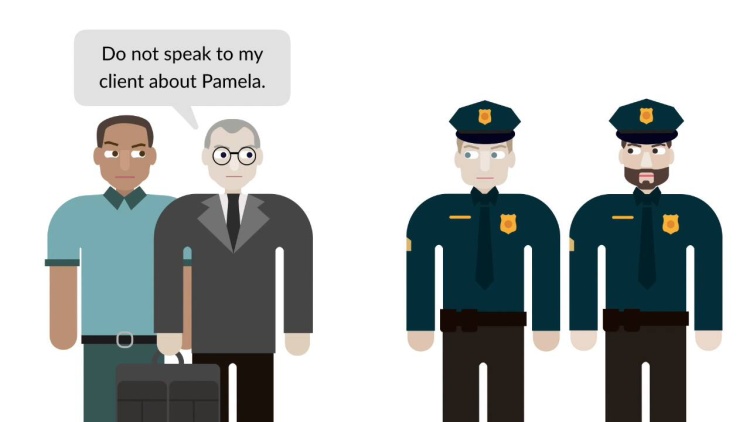Brewer v. Williams
United States Supreme Court
430 U.S. 387, 97 S. Ct. 1232, 51 L. Ed. 2d 424 (1977)
- Written by Sarah Venti, JD
Facts
Williams (defendant) had escaped from a mental institution and was suspected of kidnapping a young girl from a YMCA in Des Moines. The Des Moines police issued a warrant for his arrest. Two days after the abduction, and after consulting with a Des Moines attorney who advised him not to talk to the police, Williams turned himself in to the Davenport police where he was arrested pursuant to the outstanding warrant. Williams’s attorney in Des Moines arranged for two officers to go pick Williams up in Davenport, and they agreed not to question Williams during the 160-mile trip back to Des Moines. Williams was arraigned in Davenport, and he was able to consult with a Davenport attorney who advised him not to say anything until he arrived back in Des Moines and could talk with his attorney there. Before putting him in the police car for the ride back to Des Moines, the attorney in Davenport again reiterated to the police that they were not to question Williams during the trip. Once in the car, Williams told the police that he would tell them everything that happened once they got back to Des Moines and he could talk with his lawyer. However, one of the officers then delivered the “Christian burial speech.” The officer told Williams that he was not asking him any questions, but he just wanted Williams to think about something on the ride back to Des Moines. He wanted Williams to think about how bad the weather was outside, that it was going to snow, that the snow would cover the girl’s body, and the police may never be able to recover it and give her the chance at a proper Christian burial. The officer knew that Williams had escaped from a mental institution and also that he was very religious. The officer also testified that his statement was intended to get information from Williams. A few hours into the trip, Williams eventually told the police to stop and showed them where the body was hidden. Williams was indicted for first-degree murder. The trial judge denied Williams’s motion to suppress all evidence resulting from his statements made in the police car, holding that the officer’s “Christian burial speech” amounted to interrogation but that Williams had waived his right to have an attorney present when he began speaking to the police in the car. Applying the totality-of-the-circumstances test to hold that Williams had waived his right to counsel, the state supreme court affirmed. The federal district court granted a petition for a writ of habeas corpus, holding that as a matter of law the evidence resulting from Williams’s statements made in the car was wrongly admitted at trial. The court of appeals affirmed, holding that the state failed to establish that Williams intentionally waived his right to have counsel present.
Rule of Law
Issue
Holding and Reasoning (Stewart, J.)
Concurrence (Marshall, J.)
Concurrence (Powell, J.)
Concurrence (Stevens, J.)
Dissent (Blackmun, J.)
Dissent (Burger, C.J.)
Dissent (White, J.)
What to do next…
Here's why 907,000 law students have relied on our case briefs:
- Written by law professors and practitioners, not other law students. 47,100 briefs, keyed to 996 casebooks. Top-notch customer support.
- The right amount of information, includes the facts, issues, rule of law, holding and reasoning, and any concurrences and dissents.
- Access in your classes, works on your mobile and tablet. Massive library of related video lessons and high quality multiple-choice questions.
- Easy to use, uniform format for every case brief. Written in plain English, not in legalese. Our briefs summarize and simplify; they don’t just repeat the court’s language.





